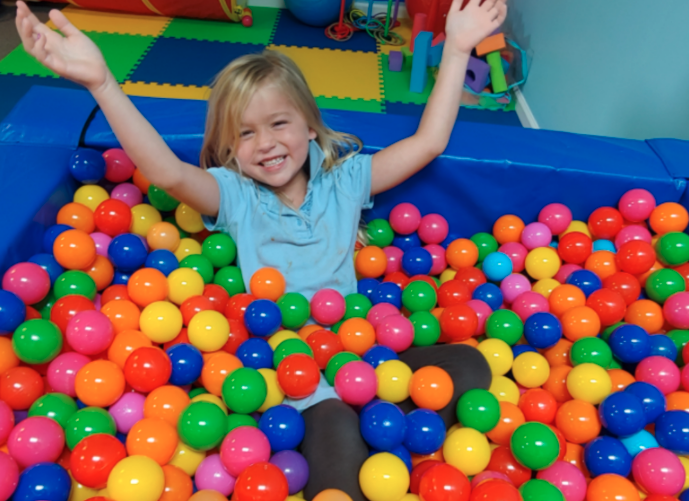Pediatric Occupational Therapy
We have highly trained and experienced occupational therapists who are passionate about their careers focused on occupational therapy for children (we also offer adult occupational therapy). We have a full service pediatric occupational therapy clinic in Beulaville, NC. We also do in home and daycare private therapy within Wilson, Kenly, Blackcreek, Lucama, Selma, and Smithfield.
Not sure what pediatric occupational therapy is? We all know that speech therapy gets you talking and physical therapy gets you walking—but what is occupational therapy? Everything in between, which means we provide therapy to address difficulties related to fine motor skills, sensory processing, and self-help skills. Read below for a full description of common diagnoses as well as milestones your child should be reaching.
Our experienced occupational therapists’ have a wide range of knowledge and intervention techniques to help your child reach their maximum potential. We pride ourselves on our ability to challenge children and help them reach goals that initially appear out of reach.

Common Pediatric diagnoses our therapists treat:
- Fine Motor Delay/Coordination disorder
- Self-Help Delay (cannot dress themselves or feed themselves at an age appropriate level)
- Autism Spectrum Disorder
- Cerebral Palsy
- Stroke
- Attention Deficit Hyperactivity Disorder (ADHD)
- Feeding Difficulties
- Traumatic Brain Injury
- Down Syndrome
- Handwriting Difficulties
- Oral Motor Difficulties/low tone
- Sensory Processing Disorder
- Brachial Plexus Injuries
Request an Appointment
We have clinics in Beulaville, Goldsboro, Smithfield, and Jacksonville and travel services in Wilson & Johnston counties. Contact us today to learn how we can serve you, or request an appointment today!
Request an Appointment